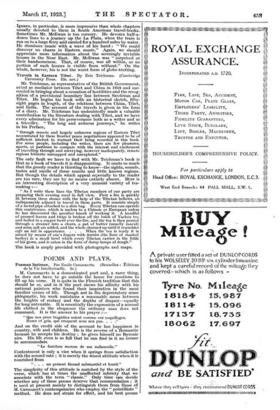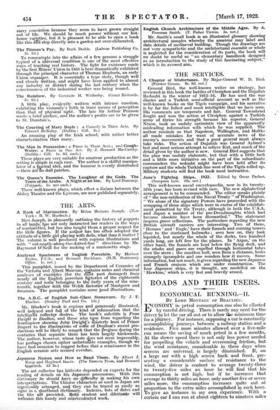POEMS AND PLAYS.
M. Cammaerts is a domesticated poet and, a rarer thing, he does not have to go outside the home for emotions to fill up his verse. • It is quite in the Flemish tradition that this should be so, and in it the poet shows his affinity with his national painters who - found their inspiration in the most familiar scenes of life. Though not in the depreciatory sense phlegmatic, his work maintains a reasonable mean between the heights of ecstasy and the depths of despair—equally for long untenable. It is essentially the expression of a normal life clothed in the eloquence the ordinary man does not command. It is the answer to his prayer :- " Que nos pires tragedies soient comme ces coquillages, Roses et gris, qui eraquent sous nos pas. . .
And on the credit side of the account he has happiness in country, wife and children. He is the reverse of a Romantic because he accepts his destiny • he gives himself no Byronic airs. His life even is so full that he can find in it no corner to accommodate " Le fanteme morose de ma melaneolie."
Contentment is only a vice when it springs from satisfaction with the second-rate ; it is merely the wisest attitude when it is nourished from
. . un present fecond substantiel et lourd."
The simplicity of this attitude is matched by the style of the verse, which has at times the unaffected sobriety that we associate with the term " classic." Only time can decide whether any of these poems deserve that commendation ; it is used at present merely to distinguish them from those of M. Cammaert's contemporaries who employ the " pointilliste " method. He does not strain for effect, and his best poems carry conviction because they seem to havestraight out of life. We should be much poorer witiffirtnour hot- house varies, but it is pleasant to be able to open a book like this tiM step directly into a garden not over-elaborated.











































 Previous page
Previous page